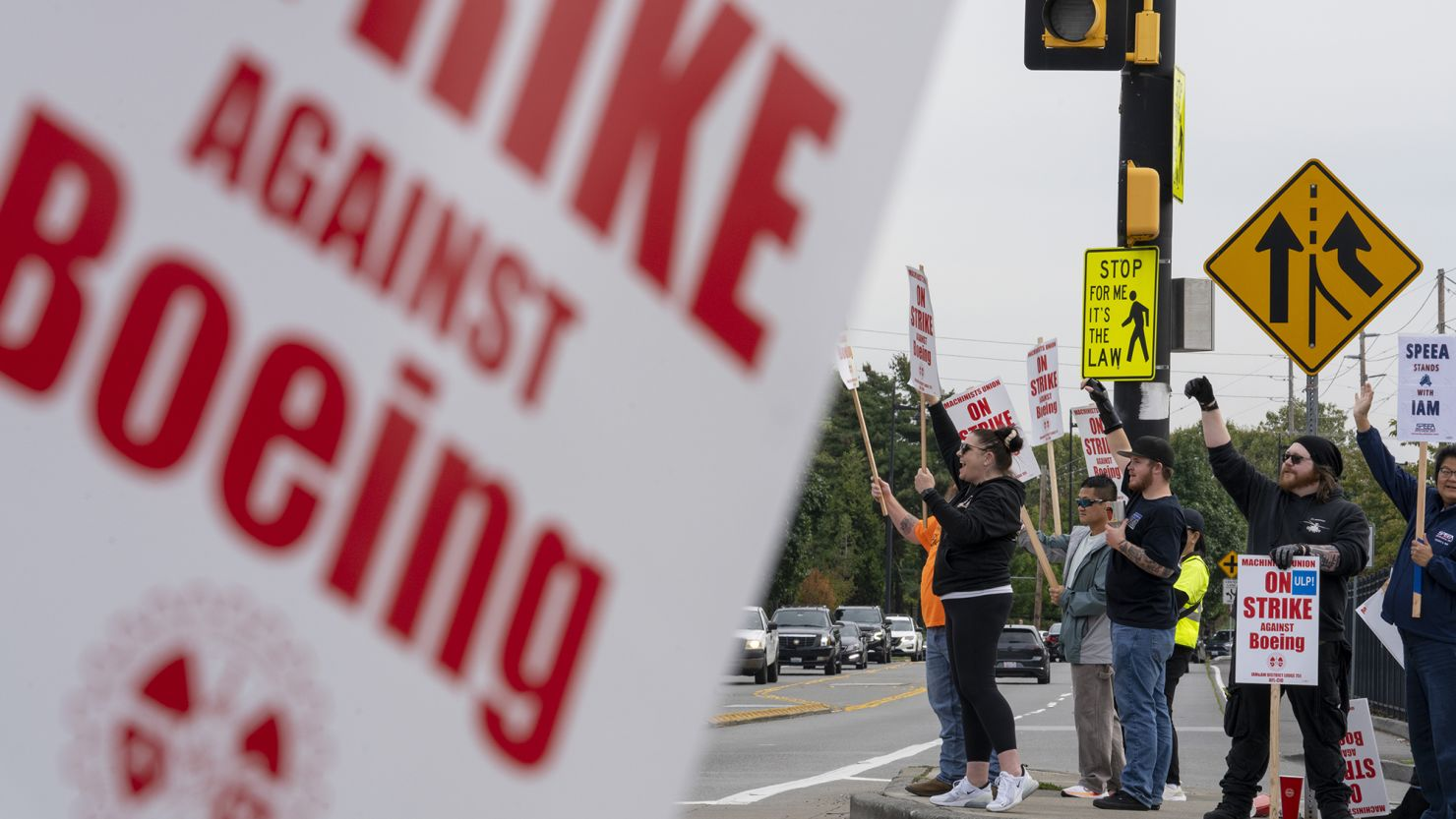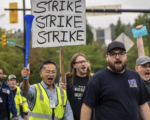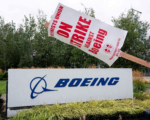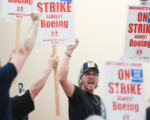Boeing Freezes Hiring and Weighs Furloughs Amid Ongoing Worker Strike

Boeing is freezing hiring and considering temporary furloughs to reduce costs as a strike by more than 30,000 workers entered its fourth day on Monday. The strike, which halted production of Boeing’s 737 series, comes at a critical time when the company was aiming to ramp up its assembly lines. The strike received overwhelming support from union members, with 96% voting in favor, surprising both Boeing and union leaders.
In response, Boeing’s Chief Financial Officer, Brian West, warned that the strike threatens Boeing’s recovery and that immediate actions are needed to preserve cash flow and secure the company’s future. In a letter to employees, West announced that Boeing would halt the issuance of most supplier purchase orders for its 737, 767, and 777 programs. This decision could disrupt an already fragile supply chain still recovering from the COVID-19 pandemic, sending shockwaves through the industry. Smaller suppliers are expected to lay off workers, creating a vicious cycle of departures and further delays.
The strike adds to Boeing’s ongoing challenges, including a safety crisis involving its 737 MAX, which has been plagued by technical issues and a $60 billion debt burden. S&P Global Ratings warned that while a short strike could be manageable, a prolonged one would strain the company’s finances.
Equity analysts estimate that Boeing may lose $102 million in daily revenue, potentially totaling over $3 billion if the strike continues for several weeks. Union leaders rejected Boeing’s offer of a 25% wage increase over four years, citing the removal of an annual performance bonus. The union initially sought a 40% wage hike and is pushing for the reinstatement of a defined-benefit pension plan, although they acknowledge this may serve as leverage for negotiating better pay and benefits.
Negotiations between Boeing, the union, and federal mediators are set to resume on Tuesday, but union members remain resolute. Many are prepared for an extended strike, drawing comparisons to previous strikes in 2008 and 2005, which lasted 57 and 28 days, respectively.
Workers on the picket lines are expressing frustration over stagnant wages while Boeing executives receive hefty bonuses. Some workers, like Chris Ginn, say they live paycheck to paycheck and are determined to hold out for a better deal, even if it means enduring weeks without a salary. The union is providing $250 weekly strike pay to help sustain its members during the work stoppage.
















